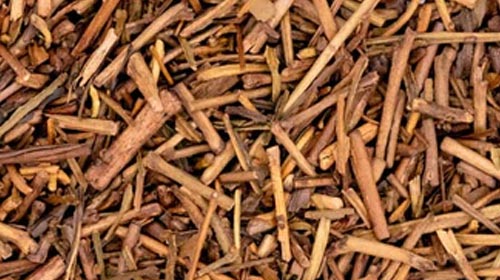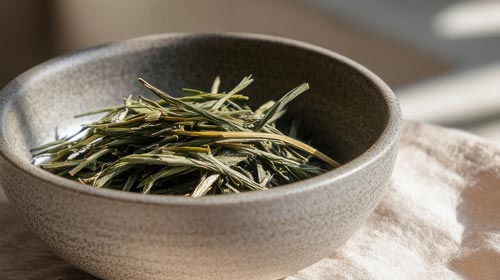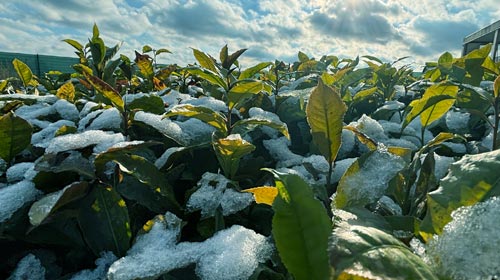Anyone who thinks a tea is defined solely by its leaves hasn't tried Karigane or Hōjicha Kukicha. These two varieties of Kukicha impressively demonstrate how much aroma, structure, and depth lie in the seemingly inconspicuous parts of the Camellia sinensis—the stems, veins, and petioles. And when these are gently roasted, the result is a tea profile that is at once warm, smooth, and surprisingly complex.
Karigane originally means "wild goose" in Japanese—a poetic term that today refers to kukicha made from particularly high-quality teas such as gyokuro or fine sencha. In the cup, karigane is usually bright and clear, with hints of sea breeze, almond, and green wood. It combines the gentle sweetness of the stems with the umami depth of fine cultivars.
Hōjicha Kukicha, however, goes one step further: The light roasting at around 150 °C caramelizes the sugars contained in the stems. This creates a golden brown infusion with an unmistakable aroma of roasted grain, chestnut, sometimes even hazelnut or a light smoky note. The roasting also reduces the bitterness, making Hōjicha Kukicha a particularly mild tea – ideal for the evening or as an accompaniment to meals.
What both teas share is their botanical origin: the supporting structures of the Camellia sinensis. Leaf stalks, midribs, and fine veins, crisscrossed by vascular bundles, are by no means passive. They transport water, sugar, and amino acids—and store precisely those substances that later contribute to the aroma. Their fibrous structure—an interplay of cellulose, lignin, and pectin—provides stability and even heat distribution during roasting, giving the flavor a rounded and full flavor.
At Growing Karma, we purposefully utilize these qualities. Our Karigane and Hōjicha Kukicha teas come from plants that grow slowly and naturally in Germany. The cool climate and mineral-rich soil ensure dense plant tissue with a higher content of amino acids like L-theanine—perfect for these teas, which offer mild complexity rather than overt intensity.
We roast our teas with exceptional care: in small batches, at low temperatures, and with constant monitoring. This eliminates bitterness, producing delicate roasted aromas reminiscent of freshly baked bread or roasted nuts. And best of all, these teas contain hardly any caffeine, yet retain their warming depth—ideal for relaxing or as a companion tea during the cooler seasons.
Karigane and Hōjicha Kukicha express a philosophy: Nothing is secondary. Every part of the plant has its own character. And sometimes, something new emerges precisely when you change your perspective.
Try it. Take a sip of Karigane and feel the clarity of high-quality stems. Or treat yourself to a brew of Hōjicha Kukicha when it's raining outside and the light is warming inside.
You'll notice: These teas aren't just about taste. They're about structure, tranquility, and the art of turning simplicity into something authentic.




Leave a comment
This site is protected by hCaptcha and the hCaptcha Privacy Policy and Terms of Service apply.